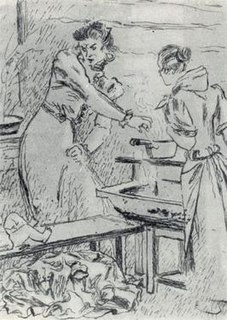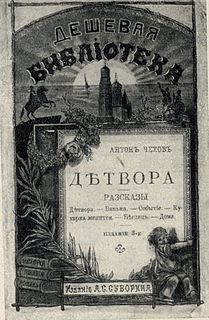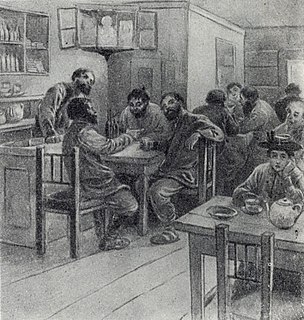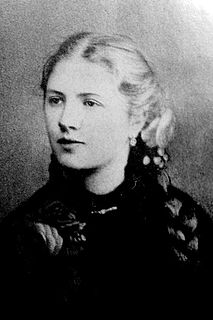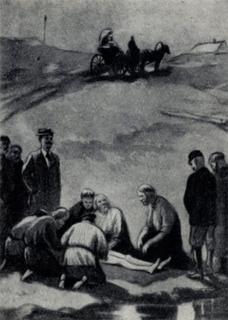| "In Exile" | |
|---|---|
| Author | Anton Chekhov |
| Original title | "В ссылке" |
| Country | Russia |
| Language | Russian |
| Published in | Vsemirnaya Illustratsiya (1892) |
| Publisher | Adolf Marks (1901) |
| Publication date | 9 May 1892 |
"In Exile" (Russian : В ссылке, translit. V ssylke) is an 1892 short story by Anton Chekhov.

Russian is an East Slavic language, which is official in the Russian Federation, Belarus, Kazakhstan and Kyrgyzstan, as well as being widely used throughout Eastern Europe, the Baltic states, the Caucasus and Central Asia. It was the de facto language of the Soviet Union until its dissolution on 25 December 1991. Although, nowadays, nearly three decades after the breakup of the Soviet Union, Russian is used in official capacity or in public life in all the post-Soviet nation-states, as well as in Israel and Mongolia, the rise of state-specific varieties of this language tends to be strongly denied in Russia, in line with the Russian World ideology.

Romanization of Russian is the process of transliterating the Russian language from the Cyrillic script into the Latin script.

Anton Pavlovich Chekhov was a Russian playwright and short-story writer, who is considered to be among the greatest writers of short fiction in history. His career as a playwright produced four classics, and his best short stories are held in high esteem by writers and critics. Along with Henrik Ibsen and August Strindberg, Chekhov is often referred to as one of the three seminal figures in the birth of early modernism in the theatre. Chekhov practiced as a medical doctor throughout most of his literary career: "Medicine is my lawful wife", he once said, "and literature is my mistress."







